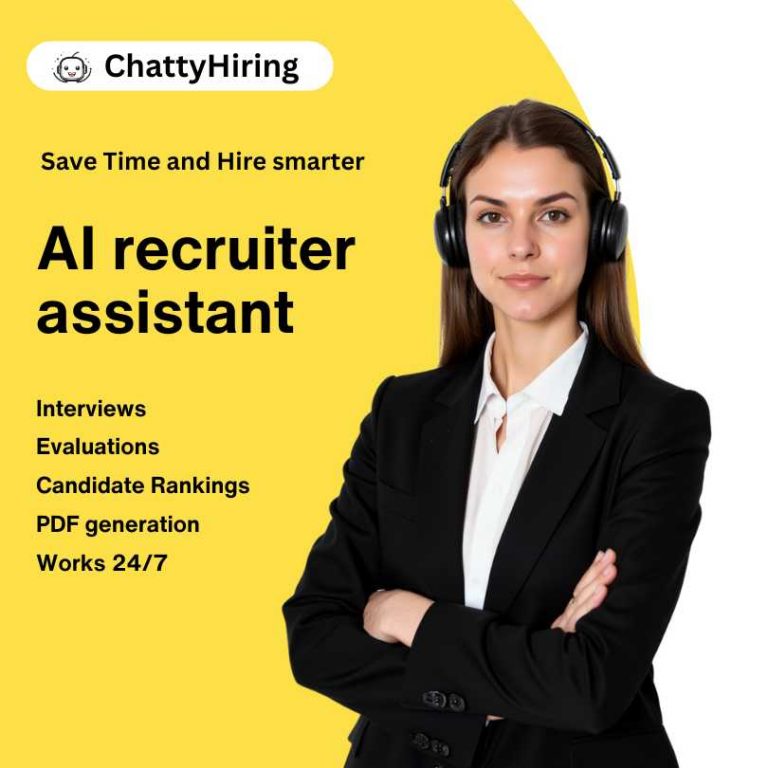The recruitment landscape has undergone a significant transformation in recent years, largely driven by advancements in artificial intelligence (AI). As organizations strive to attract top talent in an increasingly competitive job market, the integration of AI technologies into recruitment processes has emerged as a game-changer. AI encompasses a range of technologies, including machine learning, natural language processing, and data analytics, which can streamline and enhance various aspects of recruitment.
By automating repetitive tasks, analyzing vast amounts of data, and providing insights that were previously unattainable, AI is reshaping how companies identify, engage, and hire candidates. The adoption of AI in recruitment is not merely a trend; it represents a fundamental shift in how organizations approach talent acquisition. Traditional recruitment methods often rely on manual processes that can be time-consuming and prone to bias.
In contrast, AI-driven solutions offer the potential to create a more efficient, objective, and data-informed hiring process. As businesses increasingly recognize the value of leveraging technology to improve their recruitment strategies, understanding the implications and benefits of AI becomes essential for HR professionals and hiring managers alike.
Key Takeaways
- AI in recruitment streamlines the hiring process by automating repetitive tasks and identifying top talent efficiently.
- The benefits of AI in recruitment include improved efficiency, reduced bias, and better candidate experience.
- AI plays a crucial role in candidate sourcing and screening by analyzing resumes, conducting pre-employment assessments, and identifying the best-fit candidates.
- AI enhances candidate experience and engagement through personalized communication, feedback, and a seamless application process.
The Benefits of AI in Recruitment Processes
One of the most significant advantages of incorporating AI into recruitment processes is the enhancement of efficiency. AI tools can automate repetitive tasks such as resume screening, scheduling interviews, and sending follow-up communications. This automation not only saves time for HR teams but also allows them to focus on more strategic aspects of recruitment, such as building relationships with candidates and developing employer branding initiatives.
For instance, AI-powered chatbots can handle initial candidate inquiries and provide real-time responses, ensuring that candidates receive timely information without overwhelming HR personnel. Moreover, AI can significantly improve the quality of hires by utilizing data-driven insights to identify the best candidates for specific roles. By analyzing historical hiring data and performance metrics, AI algorithms can predict which candidates are likely to succeed in a given position.
This predictive capability helps organizations make more informed decisions, reducing the risk of costly hiring mistakes. For example, companies like Unilever have successfully implemented AI-driven assessments that evaluate candidates’ skills and cultural fit, leading to better alignment between employees and organizational values.
The Role of AI in Candidate Sourcing and Screening
AI plays a pivotal role in candidate sourcing by enabling recruiters to tap into a broader talent pool. Traditional sourcing methods often rely on job boards and referrals, which can limit the diversity of candidates. In contrast, AI algorithms can scour various online platforms, including social media, professional networks, and niche job boards, to identify potential candidates who may not be actively seeking new opportunities.
This proactive approach allows organizations to discover hidden talent and engage with passive candidates who possess the skills and experience needed for specific roles. Once candidates are sourced, AI can streamline the screening process by employing natural language processing to analyze resumes and applications. This technology can quickly assess qualifications, skills, and experiences against predefined criteria, significantly reducing the time spent on manual resume reviews.
For instance, companies like HireVue utilize AI-driven video interviews that analyze candidates’ verbal and non-verbal cues to assess their suitability for a role. By automating these initial screening stages, recruiters can focus their efforts on engaging with the most promising candidates while ensuring a fairer evaluation process.
AI’s Impact on Candidate Experience and Engagement
The integration of AI into recruitment processes has profound implications for candidate experience and engagement. In an era where job seekers expect personalized interactions and timely feedback, AI can help organizations meet these expectations effectively. For example, AI-powered chatbots can provide candidates with instant updates on their application status, answer frequently asked questions, and guide them through the application process.
| Metrics | Data |
|---|---|
| Time Saved | 30% reduction in time spent on repetitive tasks |
| Engagement Rate | Increased by 40% through personalized AI-driven interactions |
| Candidate Satisfaction | Improved by 50% with AI-powered communication and support |
| Application Completion | Increased by 25% with AI-driven guidance and assistance |
This level of responsiveness not only enhances the candidate experience but also reflects positively on the employer’s brand. Furthermore, AI can facilitate more engaging interactions between candidates and recruiters. By leveraging data analytics, organizations can tailor their communication strategies based on candidates’ preferences and behaviors.
For instance, if a candidate has shown interest in specific company initiatives or values during the application process, recruiters can personalize their outreach to highlight those aspects during interviews or follow-ups. This personalized approach fosters a sense of connection between candidates and employers, ultimately leading to higher levels of engagement and interest in the organization.
The Future of AI in Interviewing and Assessment
1. AI-Powered Video Interviews with Virtual Agents
AI-driven virtual agents are transforming traditional interviews by conducting video sessions that simulate face-to-face interactions. These agents can ask predefined questions, provide real-time feedback, and clarify candidate queries, offering a consistent and efficient interview experience.
2. Personalized Candidate Experience Reflecting Employer Culture
Integrating AI with customizable voice and character features allows organizations to create interview experiences that align with their corporate culture. This personalization ensures that candidates engage with virtual agents that embody the company’s values and ethos, enhancing the overall candidate experience.
3. Automated Language Proficiency Assessment
Advanced AI tools can automatically evaluate a candidate’s language skills during interviews, analyzing verbal responses to assess proficiency. This automation enables recruiters to identify candidates with strong communication abilities early in the selection process
As AI continues to evolve, its role in interviewing and assessment is poised for further innovation. AI-driven assessment tools are designed to provide objective evaluations based on data rather than personal impressions.
As organizations embrace these innovative assessment methods, they will be better equipped to identify candidates who possess not only the necessary skills but also the right mindset for success within their teams.
Implementing AI in Recruitment: Best Practices and Considerations
To successfully implement AI in recruitment processes, organizations should adopt best practices that align with their specific needs and goals. First and foremost, it is essential to define clear objectives for using AI in recruitment. Whether the goal is to enhance efficiency, improve candidate quality, or foster diversity, having a well-defined purpose will guide the selection of appropriate AI tools and technologies.
- Define Clear Objectives: Establish specific goals for AI integration, such as enhancing efficiency, improving candidate quality, or promoting diversity, to guide the selection of appropriate tools.
- Invest in HR Training: Equip HR personnel with the necessary skills to effectively use AI tools while maintaining the essential human element in recruitment decisions.
- Collaborate with Ethical Technology Providers: Partner with reputable vendors who prioritize ethical practices and transparency in their AI solutions to ensure responsible implementation.
- Regularly Review and Update AI Tools: Continuously assess and refine AI applications to keep them effective and aligned with evolving organizational needs.
- Maintain Human Oversight: While AI can automate many tasks, it’s crucial to preserve human judgment in the recruitment process to interpret AI-generated insights critically and make informed decisions.
By following these practices, organizations can leverage AI to enhance their recruitment processes while ensuring ethical standards and human involvement are upheld.
Embracing the Future of AI in Recruitment
The integration of artificial intelligence into recruitment processes represents a significant leap forward for organizations seeking to optimize their talent acquisition strategies. By harnessing the power of AI technologies, companies can enhance efficiency, improve candidate quality, and create more engaging experiences for job seekers. However, as organizations embrace this technological shift, they must remain vigilant about ethical considerations and potential biases inherent in AI systems.
As we look toward the future of recruitment, it is clear that AI will play an increasingly central role in shaping how organizations attract and retain talent.
By adopting best practices for implementation and fostering a culture of transparency and fairness, companies can leverage AI not only as a tool for efficiency but also as a means to build diverse and inclusive workplaces that reflect the values of modern society. The journey toward an AI-driven recruitment landscape is just beginning; organizations that embrace this evolution will be well-positioned to thrive in an ever-changing job market.
In a recent article on ChattyHiring, the discussion of the future of AI in recruitment is further explored in relation to how AI can significantly reduce time-to-hire. The article “What is Time to Hire and How AI Reduces it Significantly” delves into the ways in which AI-driven software can revolutionize the recruitment process and boost hiring speed.
This ties in with the broader conversation about the impact of AI on recruitment, as explored in the article “Revolutionize Recruitment: AI-Driven Software Boosts Hiring Speed.
” Additionally, the history of AI and its evolution from Alan Turing to ChatGPT is also examined in another article on ChattyHiring, shedding light on the advancements that have paved the way for AI’s integration into various industries, including recruitment. Source
FAQs
What is AI in recruitment?
AI in recruitment refers to the use of artificial intelligence technology to streamline and improve the hiring process. This can include automated resume screening, chatbots for candidate communication, and predictive analytics for identifying top talent.
How is AI currently being used in recruitment?
AI is currently being used in recruitment for tasks such as resume screening, candidate sourcing, interview scheduling, and candidate engagement. It can also be used for predictive analytics to identify the best candidates for a particular role.
What are the benefits of using AI in recruitment?
The benefits of using AI in recruitment include increased efficiency, reduced bias in the hiring process, improved candidate experience, and the ability to identify top talent more effectively.
What are the potential challenges of using AI in recruitment?
Potential challenges of using AI in recruitment include concerns about bias in algorithms, the need for ongoing maintenance and updates to AI systems, and the potential for job displacement for human recruiters.
What is the future of AI in recruitment?
The future of AI in recruitment is likely to involve even more advanced technologies, such as natural language processing for candidate communication, virtual reality for remote interviews, and the use of AI to assess candidates’ soft skills and cultural fit.
-

A passionate advocate for the future of HR innovation. With expertise in leveraging AI to revolutionize recruitment processes, Carlos has a clear vision: empower HR teams while creating meaningful candidate experiences.
View all posts



